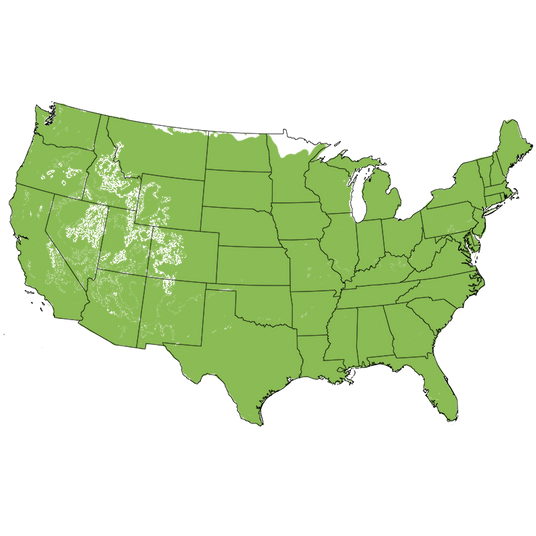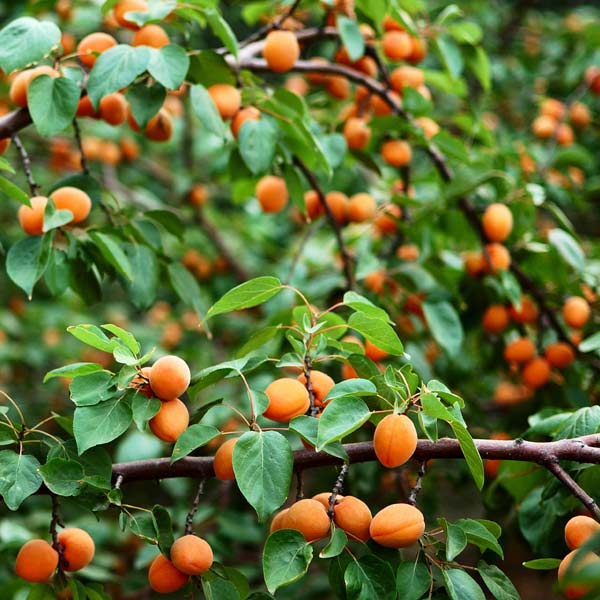Wenatchee Apricot Tree
Prunus armeniaca 'Wenatchee'
Planting & Care
Planting & Care
Delivery and Shipping
Delivery and Shipping
Preorder Shipping Schedule
We ship your plants when it's safe to transport them to your zone. Dates are estimated and subject to weather delays.
| Zone 3-4 | Week of March 30th |
| Zone 5 | Week of March 16th |
| Zone 6 | Week of March 2nd |
| Zone 7 | Week of February 23rd |
| Zone 8-12 | Week of February 15th |
Shipping Rates
Ships in 3-4 business days • Tracking provided • Weather protected
| Under $50 | $9.99 |
| $50 - $99.99 | $14.99 |
| $100 - $149.99 | $16.99 |
| $150 - $198.99 | $24.99 |
| $199+ | FREE |
✓ Zone-specific timing • ✓ Professional packaging • ✓ Health guarantee

Plant Sentry™ Protected
Your order is protected by our compliance system that:
- Prevents restricted plants from shipping to your state
- Ensures plants meet your state's agricultural requirements
- Protects gardens from invasive pests and diseases
Great-Tasting Fruit Wenatchee Apricot Tree
- Early Mid-Season
- 700 Chill Hours
- Known as a Good Annual Producer
- Outstanding, Large, Oval Fruit
- Gorgeous Ornamental Display
- Light Yellow Skin and Flesh
- Pretty, White Spring Blooms
- Great for Areas with Rainy Springs
- You May Hear it Called Wenatchee Moorpark Apricot
- Self-Pollinating, but Add Puget Gold Apricot Tree as Partner for Larger Crops
Who doesn't love the sun-drenched, good flavor of apricots fresh and juicy, straight from the tree? How about as yummy, chewy dried fruits that make such a welcome snack on their own or diced into homemade trail mix. Or, prepared into amazing, artisan preserves for an incredible breakfast treat.
Grow your own for a truly delightful experience. Even if you live in climates that have unpredictable spring rains and frosts, the Wenatchee Apricot (Prunus armeniaca 'Wenatchee') is a reliable producer.
Oregon and Washington edible landscapers? We're talking to you!
Wenatchee bears large size fruit that is very tasty. The fruit is widely used for drying and home canning.
Although it is a self-pollinating tree, you'll enjoy larger crops with a partner tree like Puget Gold. Wenatchee is also a great pollinator for late-blooming Apricots.
The flowers are white and fragrant! This tree can be a beautiful centerpiece in a landscape with the abundant spring flowers and attractive foliage and fruit set.
Order this ornamental edible plant from the expert growers at Nature Hills Nursery. You'll love watching your tree growing all through the season. Enjoy the unbeatable taste of the fruit as a big bonus!
How to Use Wenatchee Apricot Tree in the Landscape
Plant this beauty front and center. Yes, you can use fruiting trees in your front yard.
Allow it to take its full size, height and spread to use as a single specimen tree. Plant it 20 feet out away from the corner of your house as a noteworthy anchor in your foundation planting.
Let it shine in a special spot in a mulched bed near your patio. The fragrant blooms and developing fruit put on a terrific show for your and your guests.
You can also keep them smaller with simple summer pruning for size control. Try a hedgerow of several varieties along the length of your fence line. Plant them as close as 5 feet apart on center, measuring from the center of one to the center of the next.
Add varieties that ripen at different points along the season. You'll love having fresh fruit over a long period of time.
#ProPlantTips for Care
Give Wenatchee Apricot trees a location with full sun, well-drained soil and good air circulation.
Wenatchee produces best in well-drained and fertile soils with a pH of 5.5 to 7.5. If you need to improve the soil drainage, you can create a raised planting bed or mound dirt to 18 inches and 3 feet wide.
Provide a moderate amount of water on a regular basis. Apply a 3 inch layer of mulch to keep the root system nice and moist, but don’t let mulch touch the trunk. Pull it back away by a few inches, and spread it out to 3 feet past the canopy.
In spring after bud break, prune Apricots to remove crossing branches. The goal is to eliminate vertical branches to allow for more sunlight and air into the canopy.
Sculpt fruiting plants scaffolding branches at a horizontal or 45 degree angle, so sculpt your tree’s scaffolding branches with that aim in mind.
Wenatchee is a heavy producer. Plan to thin the fruit early in season for superior size and quality of mature harvests.
Prune for size control in summer. You can keep fruit trees under 8 feet for ease of harvest, spraying and netting.
People love Wenatchee Apricots for their productivity, great taste, good looks and all-purpose uses. Don't miss out!
We'll sell out of this year's crop quickly, so order today!
Apricot Tree Frequently Asked Questions
How long does it take for Wenatchee Apricot Trees to bear fruit?
Nature Hills Nursery sells fruit trees with mature root systems that are already three to four years old, so you’ll enjoy fruit sooner than you would with younger trees! Expect your young apricot tree (Prunus armeniaca 'Wenatchee') to begin fruiting usually by the 2nd-4th year after you plant them.
How Fast Do Wenatchee Apricot Trees Grow?
Once your apricot tree has been established (after the first year), it can typically add 12-18 inches of new growth in a growing season. If your plants are adding less than that in a season, it may be worth your while to check the fertility level.
Where do Wenatchee Apricot Trees Grow Best?
Apricot trees grow best in well-drained, fertile soil in at least 6 hours of full sun per day or more. Provide good air circulation and moderate, yet consistent water. They do need very well-drained soil.
Do You Need 2 Apricot Trees to Produce Fruit?
Many apricot trees are self-fertile, however planting more than one apricot tree that blooms at about the same time, boosts yields on both trees and extends your harvest time! The Wenatchee Apricot Tree is self-pollinating and doesn't need a pollinator to produce fruit.
Apricot trees that need a pollinator partner will have the appropriate tree(s) listed for you to choose from. Nature Hills Nursery lists pollinators for each tree on the product pages. This gives you must-have information right at your fingertips!
No room? Look into High-Density Planting techniques, or choose a semi-dwarf or dwarf fruit tree.
When Should Wenatchee Apricot Tree be Planted?
Bareroot apricot trees can be planted in spring when they are available in your area. Container-grown apricot trees can be very successfully transplanted all throughout the growing season. Check for first and last frost dates for your area with your local County Extension Office.
- Plant bareroot apricot trees in the early spring.
- Plant container-grown trees anytime the ground is not frozen by digging a hole as deep as the soil line and twice as wide.
How Do I Find Wenatchee Apricot Trees for Sale Near Me?
Make your life more flavorful and your landscape work for you by shopping for Apricot trees at NatureHills.com online fruit tree nursery. You’ll find a massive selection of fruit trees for sale, including many lovely apricot tree varieties!
Choose the right tree for your area by first finding your USDA growing zone by entering your zip code in the field above the Plant Highlights section on our product pages. Narrow down your options by plant hardiness zone, sun availability, and size requirements.
Place your order, knowing it’s backed by the Nature Hills Nursery product guarantee and protected by Plant Sentry™, which helps ensure regulated plant materials aren’t sent to prohibited areas.
Expect to receive your plants at the appropriate planting time for your growing zone when temperatures are safest for those plants that ship in fall, winter, or early spring.
What shipping options do you offer?
NatureHills.com works closely with our growers and nursery professionals to ensure we ship when it is most appropriate for your area. Our goal is to deliver the hardiest plants by avoiding extreme high and low temperatures. Check out our shipping schedule for more information and to learn our wills and won’ts when it comes to shipping plants. Find your Wenatchee Apricot Tree for sale here at NatureHills.com!
-
Botanical Name
-
Growing Zones
-
Height
-
Width
-
Sunlight
-
Growth RateModerate
-
Flower Color
-
Leaf Color
-
Pollinator FriendlyYes
-
Pollinator Required
-
Bloom PeriodLate Spring
-
Does Not Ship ToAK, HI, ID, MT



